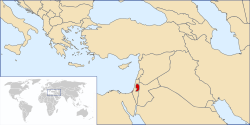Palestinians Celebrate As Turkey Withdraws Veto On NATO Ties With Israel – OpEd
By Dr. Sudhanshu Tripathi
While thousands of Palestinians and visiting tourists gathered into the West Bank city of Bethlehem on the just gone by Monday to celebrate Christmas against heartening backdrop of the United Nations granting them upgraded non-member observer status for their state and also winning their first UNESCO World Heritage Site designation for their Church of the Nativity, a prominent NATO member Turkey has decided to withdraw its veto on non-military cooperation between the alliance and Israel which it had imposed in anguish and retaliation because the Israeli army had stormed the Turkish aid ship in 2010, carrying humanitarian assistance to the blockaded Gaza Strip even when it was passing through international waters in the Mediterranean Sea, resulting into death of the nine Turks. Adding to their woes, Israel had rejected the Ankara’s genuine demands for an apology and compensations. As a result, Turkey’s relations with its former ally, Israel had deteriorated sharply.

It was in the recently held meeting of the 28-member NATO members in Brussels on Dec. 4, that the Turkish decision to renew its contacts with NATO came to please several alliance-partners of Israel, who, in return, agreed to drop a veto against cooperating with Turkey-friendly countries, notably in the Arab world, perhaps, including Iran. As it is, Turkey will agree to Israeli involvement in certain NATO activities but, at the same time, will maintain its ban on joint military manoeuvres, thereby retaining its right to bar certain category of activities with Israeli on its own soil.
The agreement comes after the NATO conceded to deploy Patriot anti-aircraft missile batteries along the Turkish border with Syria on Ankara’s request which had considerably annoyed and worried Iran thereby causing a major disruption in their mutual ties as was evident from the cancellation of President Ahmadinejad’s scheduled visit to Konya city, just few days back, where he was to participate, on the invitation of Turkish Prime Minister Recep Tayyip Erdogen, in the death anniversary commemoration of the 13th century Sufi mystic Jalal ad-Din Muhammad Balkhi.
Prior to this, even Iran’s armed force chief, General Hassan Firouzabadi had also harshly criticised the role of Turkey in connection with the missile deployment. “Each one of these Patriots is a black mark on the world map, and is meant to cause a world war. They are marking plans for a world war, and this is very dangerous for the future of humanity and for the future of Europe itself,” warned the General Firouzabadi whose remarks seemed to conjure images of the 1962 Cuban Missile crisis erupted due to deployment of missiles into Cuba by the then USSR which had led to an imminent showdown with the USA.
As some analysts point out that Iran is worried that once the Patriot anti-missile and anti-aircraft batteries are installed, Turkey- free from threat of Syrian air strikes- would be emboldened to escalate support for the armed Syrian opposition. This would, in turn, pose a graver threat to the survivability of the pro-Iranian government of President Bashar al-Assad of Syria. It was, therefore, unsurprising that Ali Akbar Salehi, Iranian Foreign Minister, followed up warning with an unambiguous statement in support of Mr. Assad; that Iran would do everything in its power to thwart foreign efforts aimed for ensuring “regime change in Syria”. In fact, Iran considers Syria as a lynchpin of the “axis of resistance” against Israel which also includes the Lebanese Hizbollah and the Palestinian Hamas.
Thus, while Turkey and Israel are on a compromise route to strengthen the collective alliance power and the Palestinian are also in an upbeat mood to enjoy their new found upgraded international status in the comity of nations which may finally result into materialising their long cherished dream of their home land with a full-fledged state, the likely Turkey-Iran standoff over Patriot missiles deployment will, in all likely hood, lead to grave tensions in the already tense and volatile scenario of the Middle East region, in terms of peace and prosperity and security of the region. Because, it will escalate tensions between the two prominent neighbours with likely scenario of close relations between Iran and Russia, thereby putting strains on the hitherto prevailing balance of power among member countries in the region of West Asia. Further it will, obviously, motivate the US to vigorously pursue its national interests by forging closer ties with all of them in the region as the economic and energy constraints for it are very high as they are for Russia and other countries, too.
Dr. Sudhanshu Tripathi, Associate Professor, Political Science, M. D. P. G. College, PRATAPGARH (UP), India.
